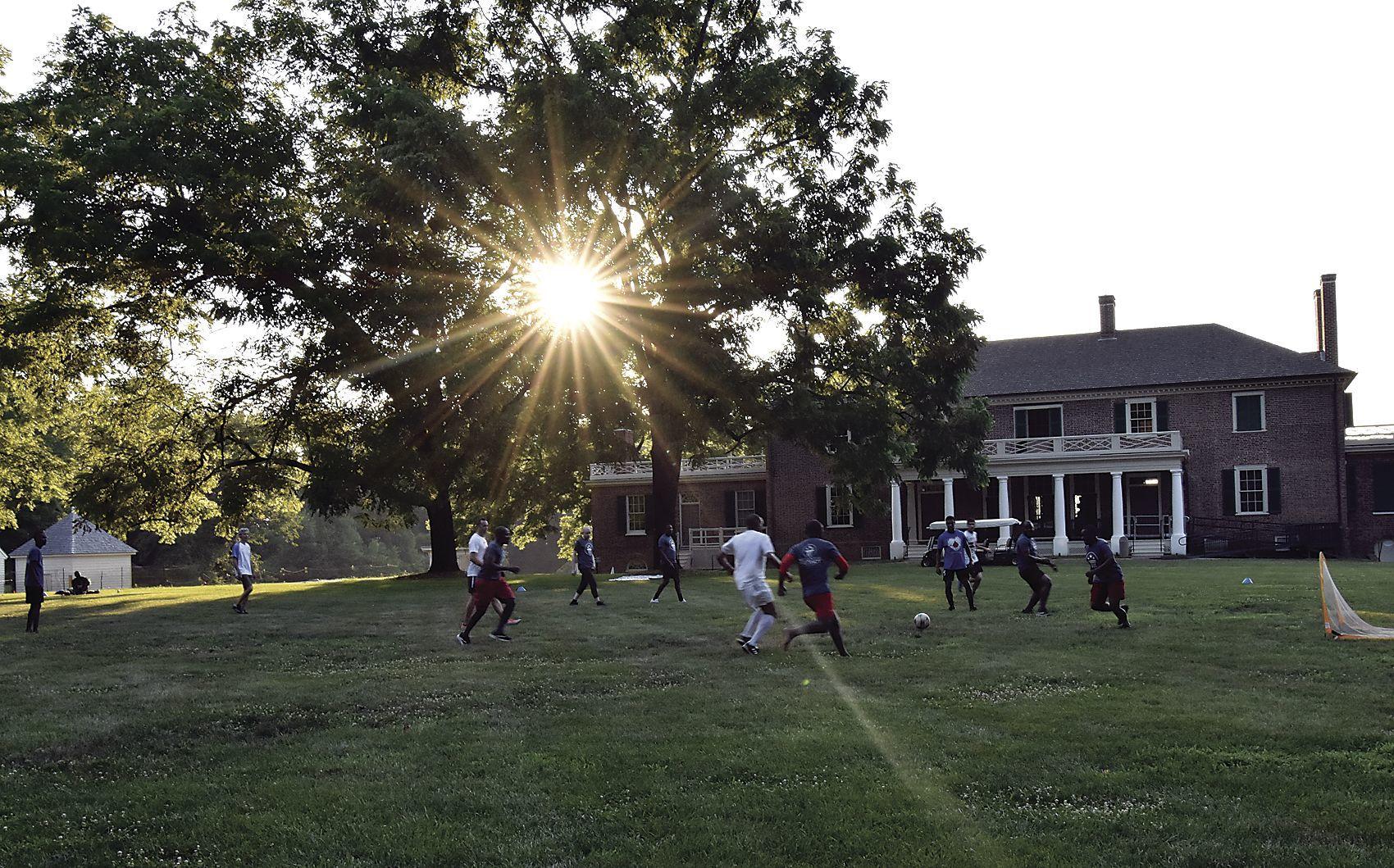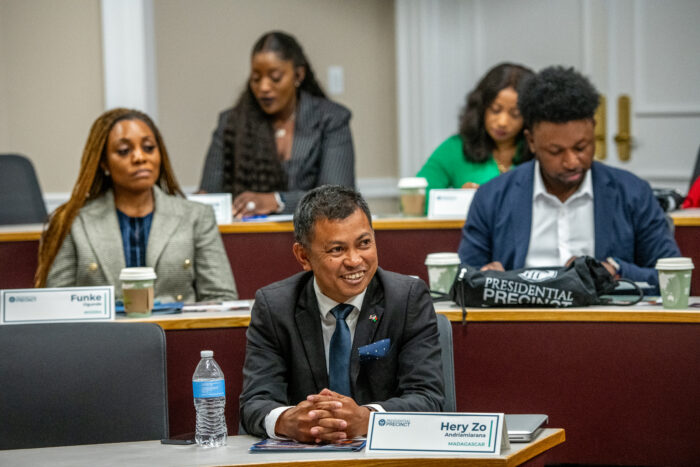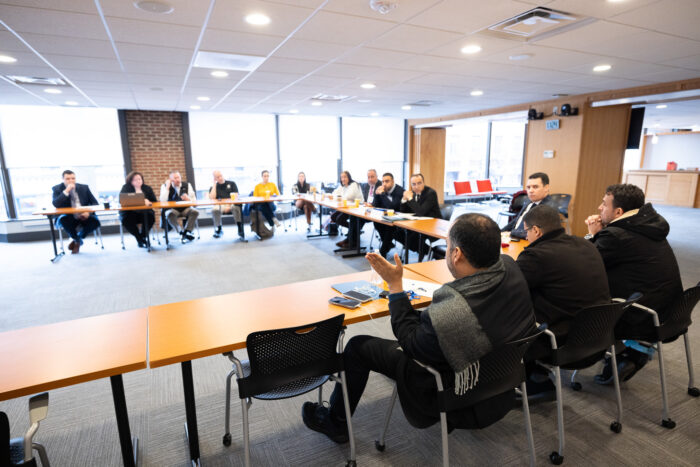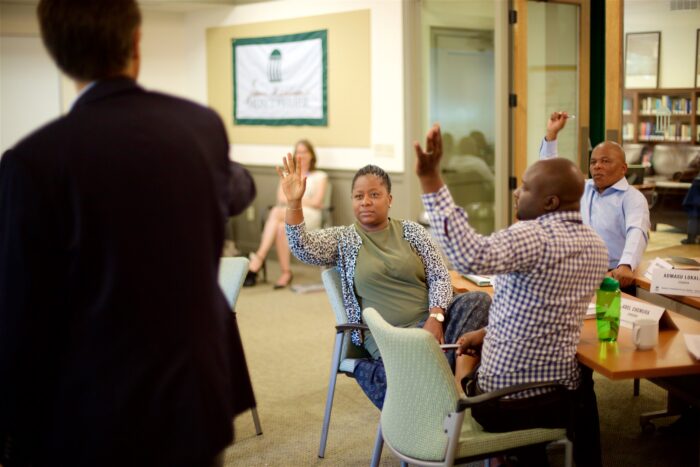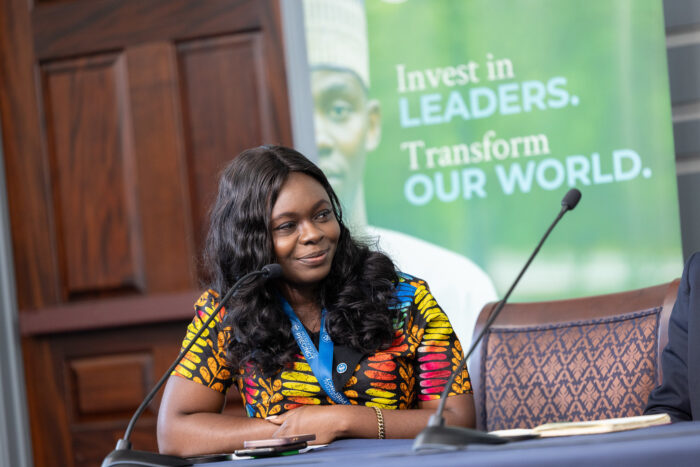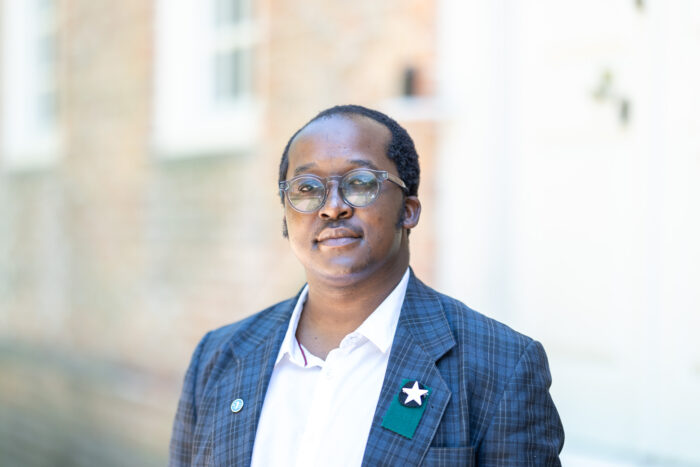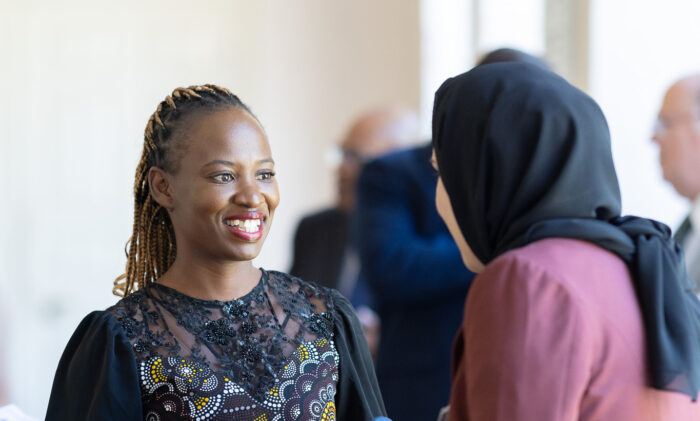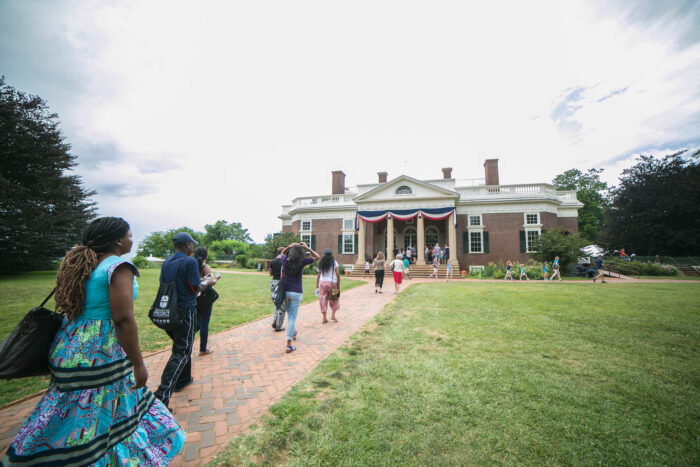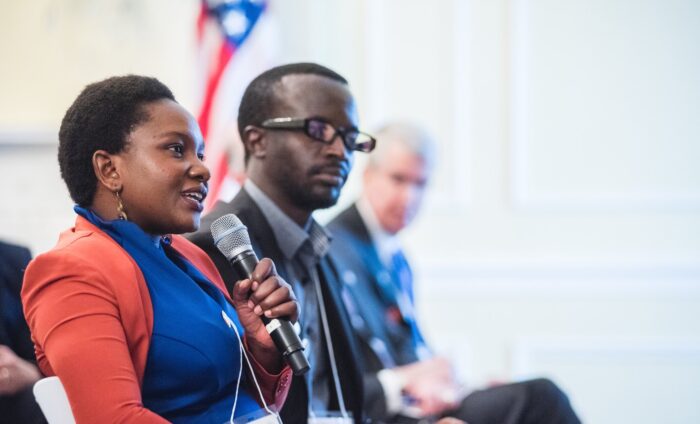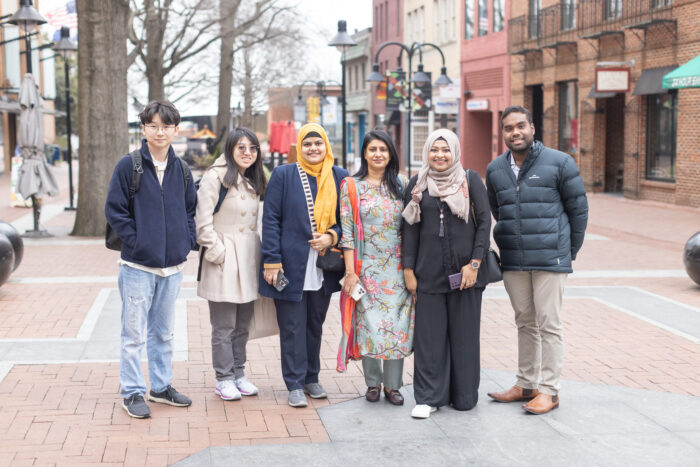Sowing Seeds of Democracy
Originally published by the Orange County Review.
As part of its partnership with the Presidential Precinct, Montpelier hosted 22 young African leaders representing 16 countries earlier this month. The leaders’ five-day stay at Montpelier—focused on rights, leadership and constitutions—was a portion of a larger six-week study program in Virginia.
The Virginia-based program is one cohort for the 700 participants of the 2018 Mandela Washington Fellowship for Young African Leaders.
In addition to Montpelier, other partnering historic sites and institutions chosen by the U.S. Department of State to annually host the Fellows include: the University of Virginia, William & Mary, William Short’s Morven, Thomas Jefferson’s Monticello and James Monroe’s Highland.
Throughout the six-week program, the young Fellows, between the ages of 25 and 35, visit these sites and engage in conversations on human rights and justice, good governance and civic engagement.
The Presidential Precinct is oriented toward Fellows dedicated to serving the public through non-governmental organizations, community-based groups or volunteerism. Among the 22 African leaders participating at Montpelier were lawyers, activists, teachers, founders of nonprofits and others dedicated toward improving the conditions of their countries.
Montpelier’s Robert H. Smith Center for the Constitution has collaborated with scholars and thought leaders to develop a provocative and engaging curriculum about rights and liberties, rights-based constitution-making, leadership strengths and engaging stakeholders, for the group’s session at Montpelier. Speakers include Heinz Klug of the University of Wisconsin, Mila Versteeg of the University of Virginia, and G. Michael Pace Jr. and H. Timothy Isaacs of the Center for Teaching the Rule of Law.
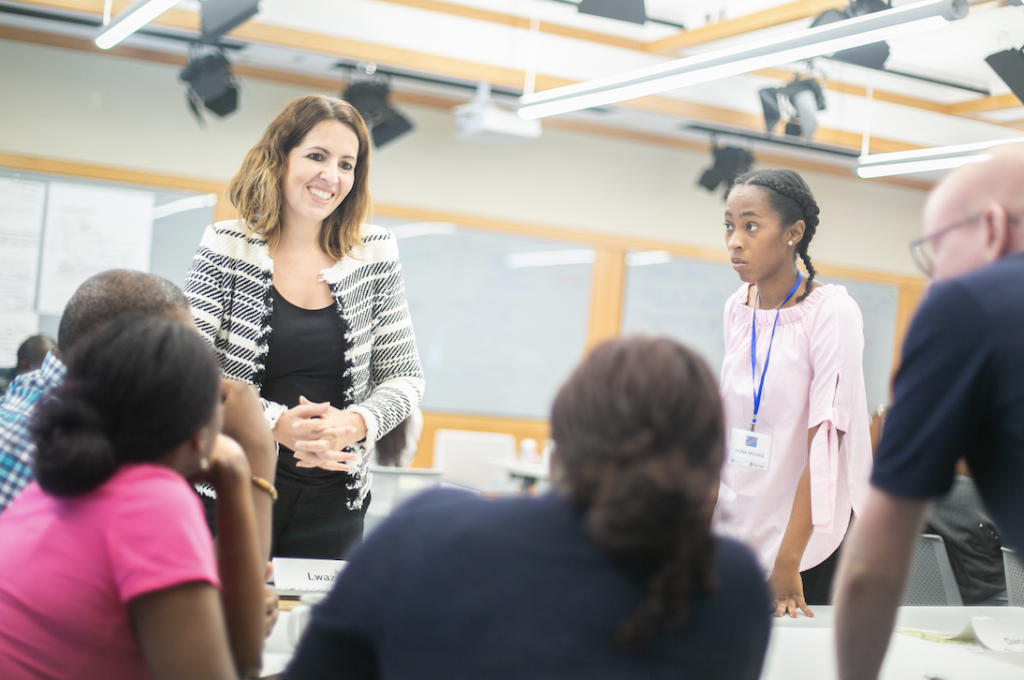
“Montpelier is the perfect place for these young leaders to examine how rights, interests and values get reflected in a country’s basic governing principles,” said Nancy Hopkins, the precinct’s director of programs. “They are learning so much from each other through these conversations, and are also helping us look at our own democracy from new angles.”
Lucky Aziken, of Nigeria, is the only medical doctor of the group. He said he brought the health care perspective to many of the Fellows’ discussions.
Aziken also is the founder of Vision Care Givers International, a nonprofit devoted to creating sustainable access to quality eye and health care and providing vision care services to neglected communities in Nigeria.
While his country is facing major issues of corruption, security and distribution of health care, Aziken said he learned those problems aren’t exclusive to Nigeria.
“That means if the problems can be solved somewhere then they can be solved anywhere,” he said.
During discussions on leadership, Aziken said Fellows were challenged to focus on themselves as leaders, determine their strengths and weaknesses and learn to build a complementary team.
“We realize that as leaders we confront these problems daily and the outcome of solving those problems will require all of us synthesizing our energy,” he said. “No one person has the exclusive ability to tackle all of these problems but if we synthesize energy we can effectively create headway in solving those problems.”
While at Montpelier, Aziken said he learned, like Madison, not all leaders are vocal. Instead, Madison was more introverted which allowed him to put his thoughts on paper, giving him the title “Father of the Constitution,” he said.
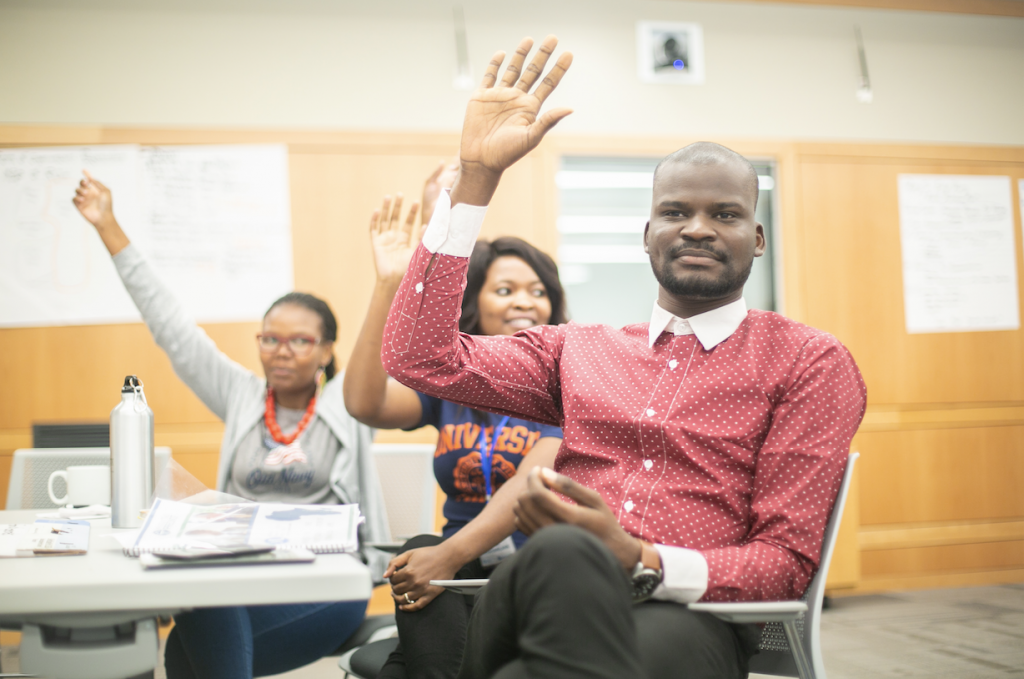
Participants were asked to construct their own constitutions during workshops. For two days, Aziken said the Fellows worked on the model document for their imaginary nation, “The Republic of Home.”
“It’s not an easy process,” he said. “It took us hours of deliberation. It was a very studious process. It made us appreciate our founding fathers and all of the people who have put in effort at different levels to draft constitutions for nations.”
During his time at Montpelier, he said he learned the importance of governance and constitutions, which many people take for granted.
“We come from an area where people don’t think it applies to them,” he said. “I’ve been in that situation.”
When he returns to Nigeria, Aziken said he plans on reading the entire Constitution of the Federal Republic of Nigeria so he can better understand his rights.
Human rights activist and volunteer Aehshatou Manu, of Cameroon, said she learned creating a constitution takes a lot of negotiating and a lot of time. When she returns home, Manu said she plans on continuing to build networks and partnerships initiated as part of the program to improve her community, something she does as a gender and advocacy officer at the Lelewal Foundation.
Cameroon is facing secession, an influx of refugees and inequality for the indigenous populations, she said. The good governance in the United States is something Manu said she wants to implement at home.
As an indigenous advocate, she empowers women and girls through income generating activities and encourages the acquisition of new skills to reduce poverty.
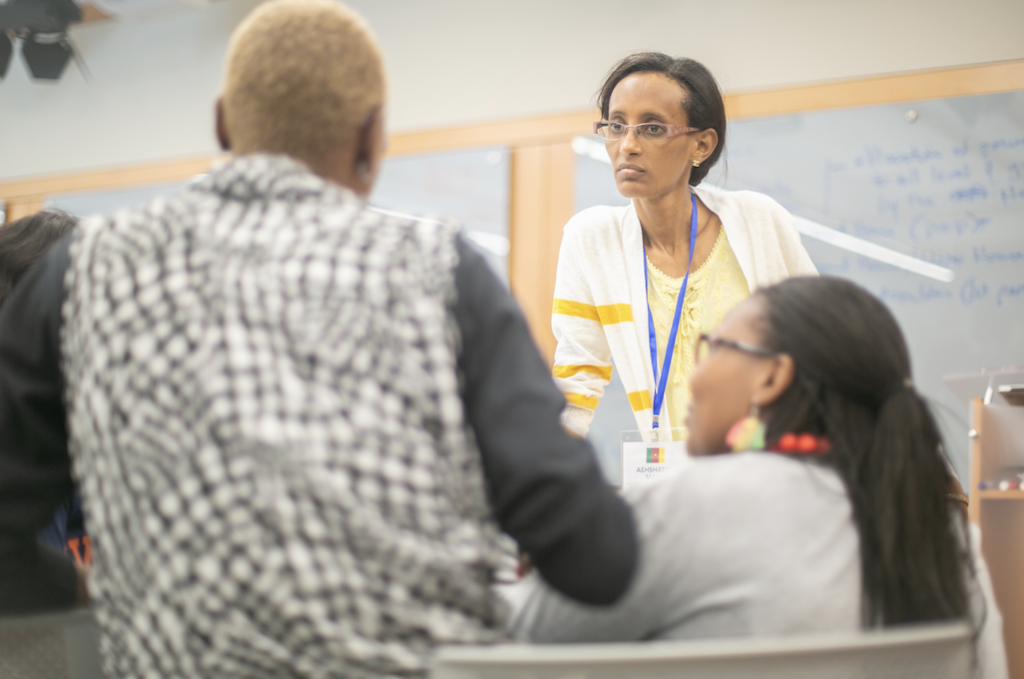
“I’m trying to do documentaries on the oral history of our people to better understand where they are coming from and how we can try to preserve that history for future generations,” she said, praising America for its active role in preserving history.
However, human rights are something even a modern democracy like America is still grappling with, she said, but is a universal need.
During their stay at Montpelier, along with their intensive study, the Fellows participated in a soccer game and picnic dinner on the back lawn of the mansion with Montpelier staff. The soccer match has become an annual tradition. Fellows also attended the bull riding rodeo at Oakland Heights Farm and watched the FIFA World Cup final match.
Fellows had options for their weekly community service projects, including helping build a set at Four County Players or assisting at the Orange County Public Library. In 2016 and 2017, Fellows nationwide contributed more than 25,000 hours of community service to American organizations and social services.
Following their six-week curriculum, all 700 nationwide Fellows will come together in Washington, D.C., for a three-day Presidential Summit. A select group of 100 Fellows will remain in the United States afterward for an eight-week internship experience at a relevant U.S. business, NGO or government agency.

